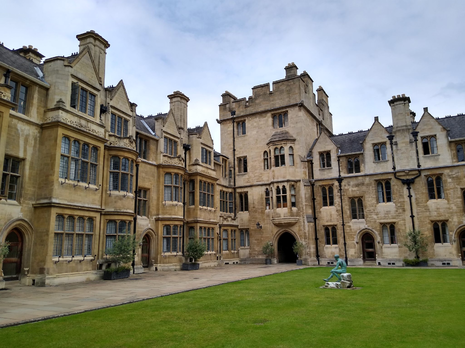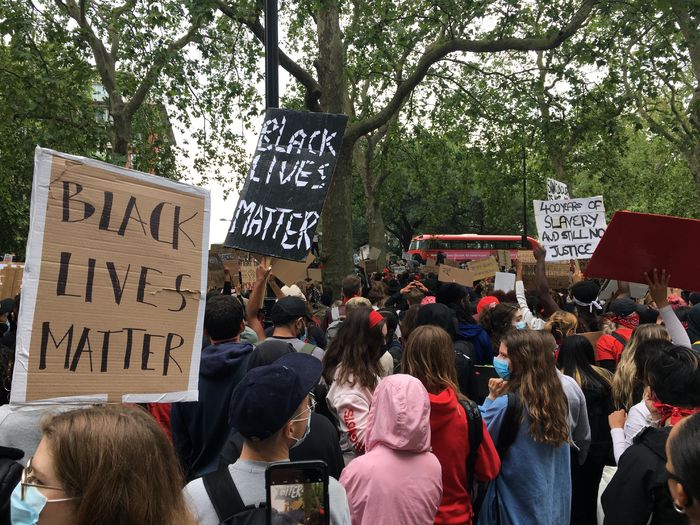Cambridge’s complaints system branded ‘not fit for purpose’ following alleged racist incident at Trinity College
The SU has called for a standardisation of complaints processes throughout the University

Content note: this article contains detailed discussion of racism
The Cambridge SU released a statement last night (18/02) calling on student-staff groups to “standardise complaints processes across colleges, strengthen student support, and promote transparency and accountability” after the news that a Cambridge PhD student was the victim of “perceived racial antagonism” at Trinity College last September.
The Huffington Post this week reported (17/02) that Gregory Serapio-García, the student in question, volunteered as a Covid-19 mutual aid supporter in September. It is claimed that upon delivering care packages for students at Trinity College, a porter stopped him and told him that they did not understand what he was saying when asking them if he could leave the packages in the students’ pigeonholes. According to Serapio-García, the porter spoke to him in a “raised voice”, saying “Trinity College do not have pigeonholes. Who exactly are you? Who authorised this?”.
Serapio-García considered this an act of “racial antagonism”. “His [the porter’s] facial expression and hands on his hips made me feel I was somehow a foreign tourist who couldn’t speak English. In actuality, though, American English is my first and pretty much only language.”
Serapio-García alleges that a white female student then approached the same porter and was treated with more respect, saying that the incident led him to feel “so denigrated, publicly embarrassed, and upset.”
According to the Huffington Post, Serapio-García found out through a Freedom of Information request afterwards that college management suggested through internal communication that he did not “understand that customer service/how people interact in the UK is different from the US; that, unless you are a fellow, porters can be and often are rude to anyone and that sensitivities/tension is heightened in Cambridge with the start of the academic year in the Covid era”.
On this, Serapio-García claimed that the reduction of his experience to “a primitive misunderstanding of customer service culture in the UK” is exemplary of “deep-seated xenophobia”.
Responding to the incident as a whole, Serapio-Garcia told Varsity, “I realise this is definitely not the first time that this has happened to a student of colour. In fact, I think it happens on a weekly basis.”
Serapio-García also told Varsity that 130 days on from the initial incident for him the case was not resolved. He went on to call the complaints process “undignified”, with the Huffington Post claiming that Trinity took almost five weeks to conduct an investigation into the student’s initial complaint.
A spokesperson for Trinity told Varsity that the College “fully accepted the findings of the independent investigation, and offered its sincere apologies to the complainant that they did not receive the standard of service that Trinity expects and for the length of time this process took.”
The College told the Huffington Post that an independent investigation into the claims “did not find any evidence of racism, or any other form of discrimination.”
In their press release to Varsity, the College acknowledged that the investigation did however “identify aspects of how we engage with visitors that could be improved within the College. The College is committed to taking on board these findings and is taking steps to improve the visitor experience.”
In their statement, the SU expressed their solidarity “with Gregory Serapio-García and all other BME students who have been failed by Cambridge Colleges.”
They argued that this incident is consistent with the findings of a report by End Everyday Racism (EER) from October, which “revealed the pervasiveness of racism in Cambridge and found a widespread lack of trust and confidence among BME students in both the capacity and will of Cambridge Colleges to handle cases of racist harassment and abuse.”
The EER project was founded in 2018 in order to “account for everyday racism in ways that [...] can be put as truthful and trustworthy”, with its October 2020 report finding above all that 53% of racist incidents occurred within colleges, 60% of victims felt they did not belong in Cambridge following a racist incident, students feel “powerless” to officially report racism and that anti-racism training is vital in improving the experiences of people of colour in the University.
The SU stated: “The outcome of this opaque and hostile process provided no closure to Gregory and deepened his pain”, urging Trinity College to apologise directly to the student, and to commit to “strengthening its anti-bias training.”
According to a Trinity spokesperson, “Trinity has Dignity and Respect policies in place and a programme of annual, mandatory training on equality, diversity and inclusion for all staff.
“There is a zero tolerance approach to any form of discrimination at the College. Trinity has a duty of care to both members of its community and visitors to the College. Any complaints are treated seriously from the perspectives of all those involved and we recognise the importance of investigating any such thoroughly”, the spokesperson continued.
Speaking to Varsity, Serapio-Garcia acknowledged that Trinity College already has a form of anti-bias training but he questioned, “What is the context? Have you allowed students of colour to review the contents of that training?”
He also said that, “there is no other way to hold these institutions accountable” and that the incident shows that the College “are woefully unprepared to even treat this very simple case with the dignity and sensitivity it deserves.”
The SU statement added that the “complaints system in its current form is not fit for purpose”, and that in order to “back up their stated commitments to building a welcoming and nurturing community for students from all backgrounds [...] Cambridge Colleges must go further.”
 News / Hundreds of Cambridge academics demand vote on fate of vet course20 February 2026
News / Hundreds of Cambridge academics demand vote on fate of vet course20 February 2026 News / Judge Business School advisor resigns over Epstein and Andrew links18 February 2026
News / Judge Business School advisor resigns over Epstein and Andrew links18 February 2026 News / University Council rescinds University Centre membership20 February 2026
News / University Council rescinds University Centre membership20 February 2026 News / Petition demands University reverse decision on vegan menu20 February 2026
News / Petition demands University reverse decision on vegan menu20 February 2026 News / Caius students fail to pass Pride flag proposal20 February 2026
News / Caius students fail to pass Pride flag proposal20 February 2026










